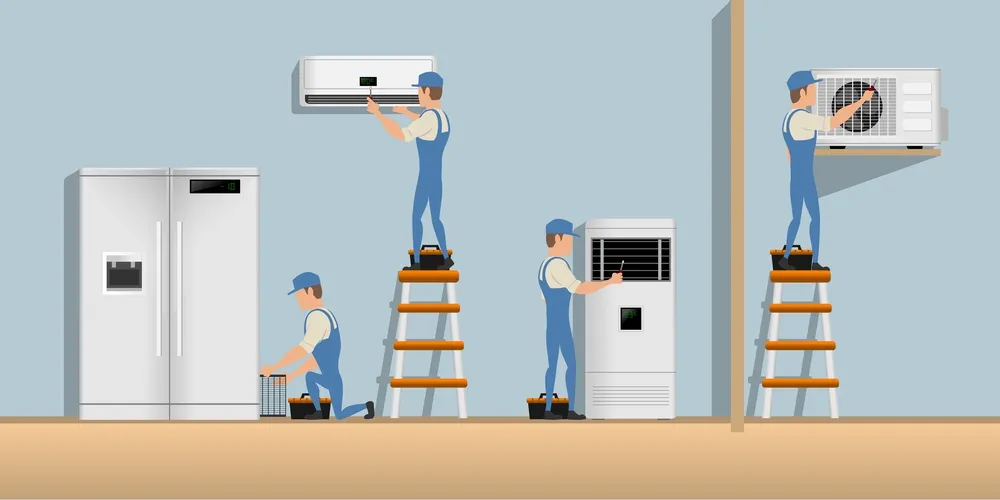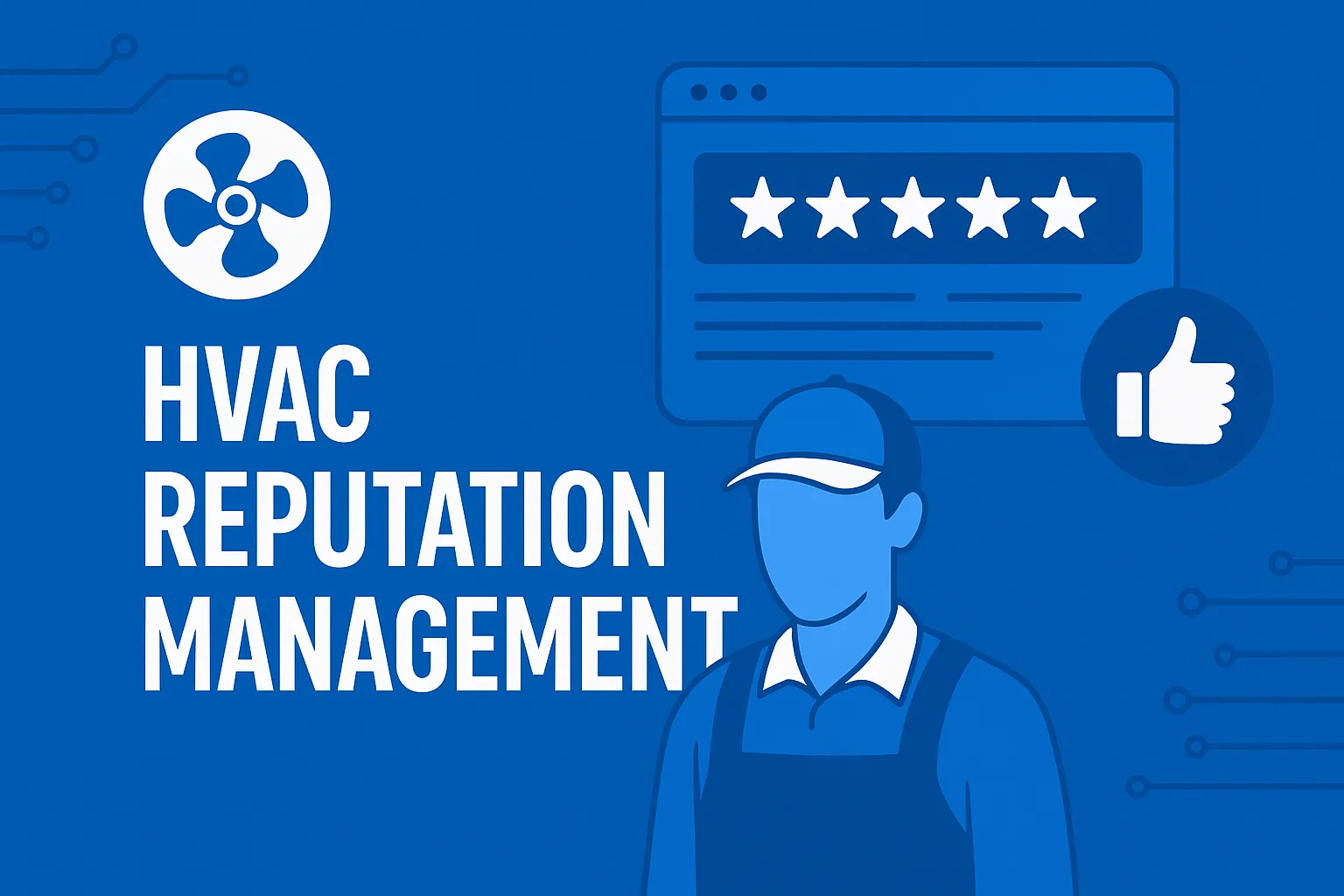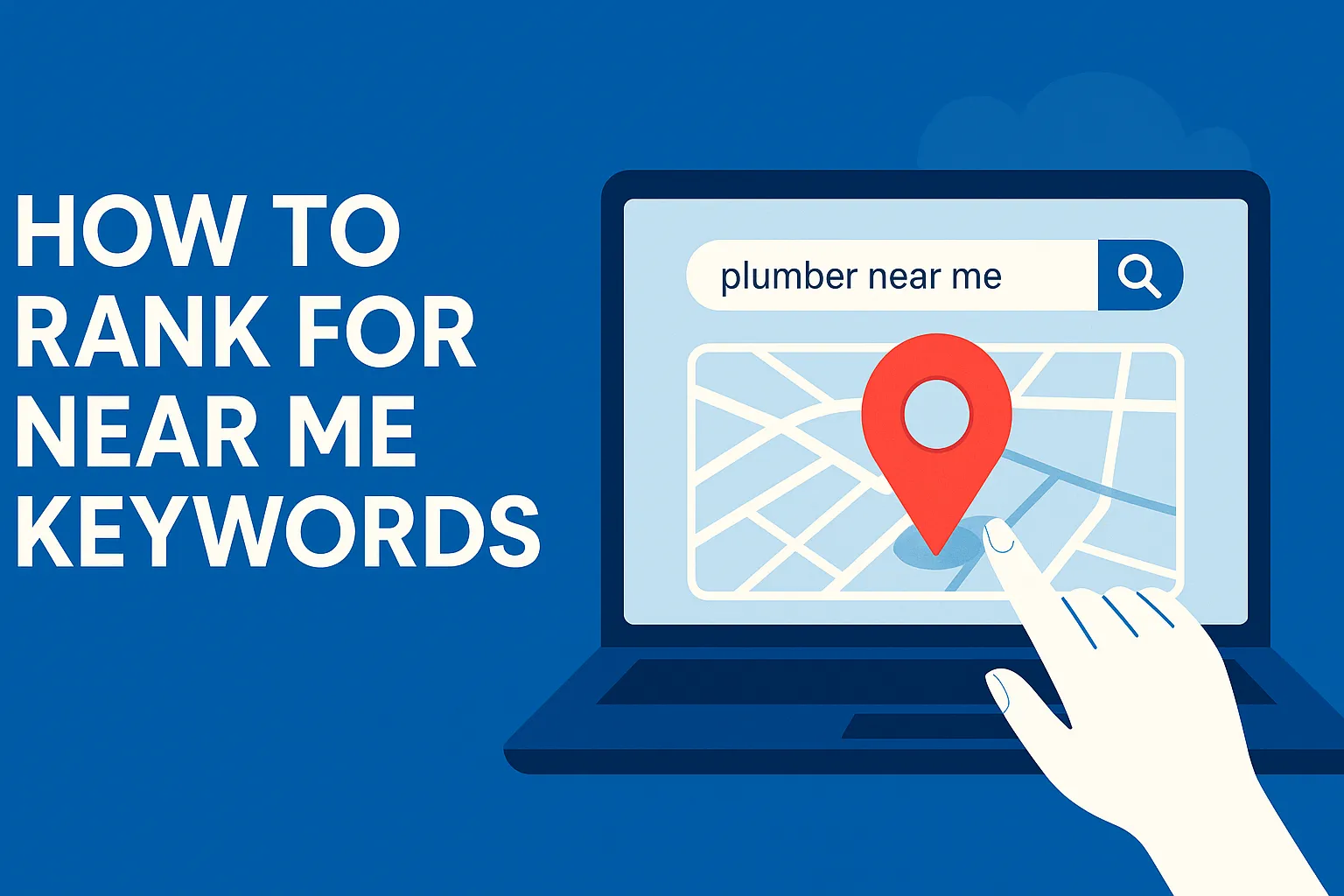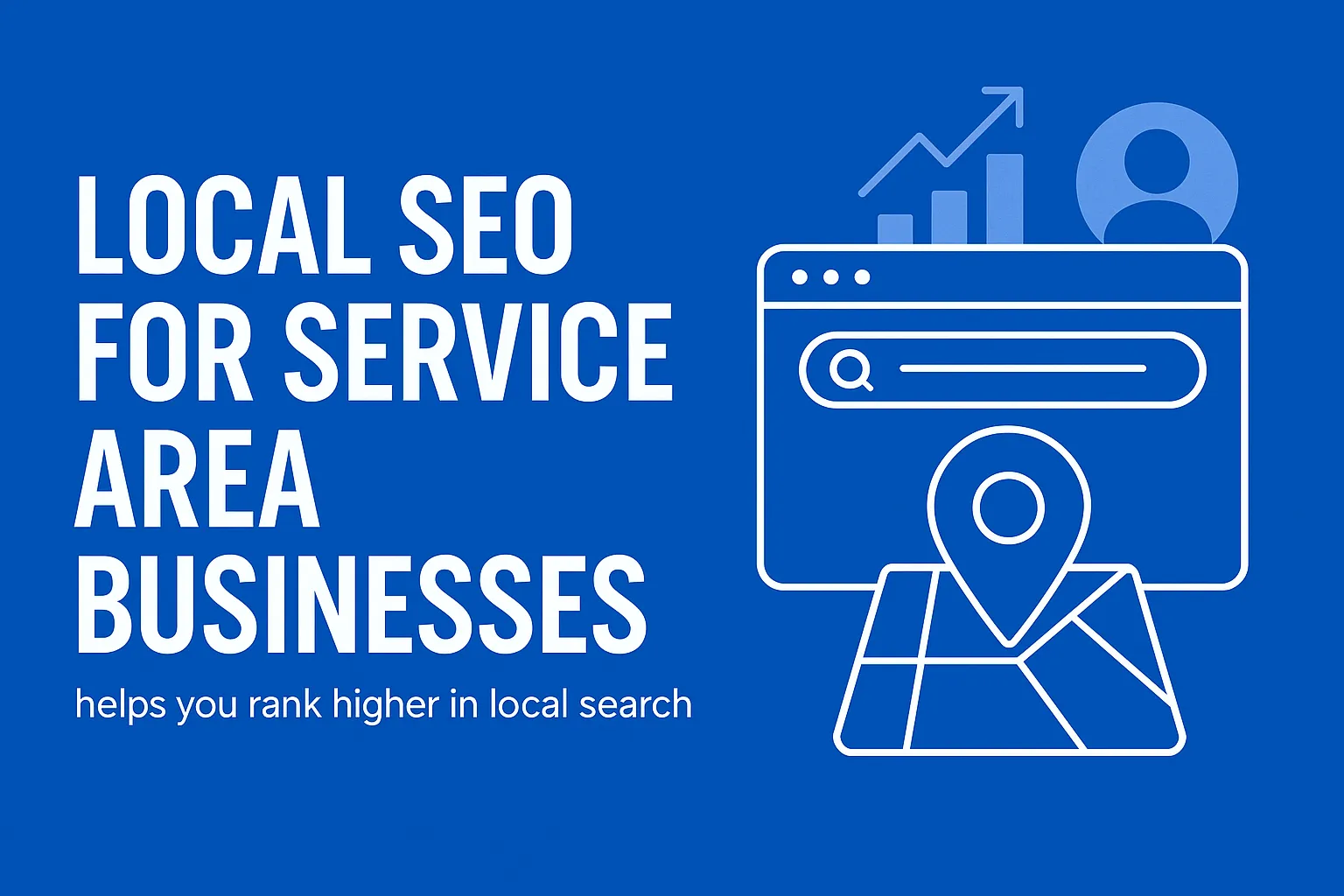Before You Go—Let’s Boost Your Leads!
Join our community of successful HVAC and Plumbing contractors who trust Klutch Growth to enhance their online presence.
Klutch Growth Blog
Effective SEO for HVAC Companies in 2025
SEO for HVAC companies is crucial as it enhances their visibility in a competitive market. With the increasing reliance on online search for service inquiries, HVAC businesses must optimize their websites to rank higher in search engine results, ensuring potential customers can easily find them.
The HVAC industry is characterized by intense competition, with numerous companies vying for customers in diverse geographical regions. This necessitates effective digital marketing strategies, where SEO plays a vital role by targeting relevant keywords, improving website performance, and increasing local search visibility.
This article examines SEO for HVAC companies, providing insight into how an optimized digital presence can increase customer engagement, brand awareness, and sales growth. By leveraging SEO, HVAC businesses can stand out in a crowded marketplace and attract more leads.

Understanding SEO Basics
Search Engine Optimization (SEO) enhances a website’s visibility on search engine results pages (SERPs), thereby driving organic traffic. Here is a simple explanation:
Relevant results shown for HVAC services queries on search engines list different HVAC websites in order of their relevance. The relevance of these websites to the search query is the purpose of optimization. This means an optimized HVAC website increases significance, improving its appearance on SERP. Other factors search engines take into consideration when listing websites on SERPs can include proximity and prominence.
SEO encompasses three key components: on-page, off-page, and technical SEO. More on these components later. Local SEO is a type of SEO that is limited to a geographical location.
Most customers search for services nearby, so local optimization strategies, such as optimizing Google Business Profile listings and gathering customer reviews, become essential. SEO ensures that potential clients can easily find and contact HVAC companies in their area.
Implementing effective SEO strategies is not just about increasing visibility; it’s about connecting with the right audience at the right time, which is vital for service-oriented businesses in competitive markets.
Key components of HVAC SEO
On-page SEO
On-page SEO optimizes individual pages through relevant keywords, high-quality content, proper formatting, and user-friendly design. On-page SEO is critical for improving a website’s visibility in search engine results and enhancing user experience.
Here are some effective on-page SEO strategies for HVAC companies.
Keyword Research
Keyword research is essential for on-page SEO for HVAC companies to reach their target audience effectively. The first step involves identifying target keywords, which can be categorized into short-tail and long-tail keywords.
Short-tail keywords are typically one or two words with a broad search volume, while long-tail keywords are longer phrases that tend to be more specific and attract more qualified leads. Tools like Google Keyword Planner, SEMrush, or ahrefs can help you uncover relevant keywords for your niche.
Once you have a list of target keywords, it is crucial to analyze competitor keywords. This involves researching which keywords your competitors rank for, giving you insights into market trends and potential gaps in their strategy. By understanding what works for them, you can refine your approach and find opportunities to stand out.
Finally, creating a keyword strategy will involve building content that effectively targets these keywords. This could include optimizing website pages, develop blog topics, and ensure other on-page SEO elements are in place.
Content Marketing
Content marketing is a powerful tool for HVAC companies to engage customers and establish authority in the industry. Creating valuable and informative content, which can take various forms, is essential.
Your blogs, articles, and guides should provide detailed insights into HVAC systems, maintenance tips, and energy efficiency, helping customers make informed decisions. Video content and tutorials can enhance this approach by visually demonstrating services, such as installation processes or troubleshooting, making complex information more accessible.
In addition to these resources, incorporating a Frequently Asked Questions (FAQ) section on a website can effectively address common customer queries. This improves customer service and boosts SEO by driving traffic to the site. On the other hand, case studies and testimonials build trust and credibility, showcasing successful projects and satisfied customers.
Optimizing Website Content
The following are proven ways to optimize your HVAC content for search engines.
1. Keyword Placement
The cornerstone to optimizing your website content is keywords. This is where the short-tailed and long-tailed keywords you came up with from your keyword research become helpful. Your keywords should be prominent from your topics and subtopics to the HVAC content.
Effective keyword placement throughout the content is essential; it should be natural and relevant, targeting terms that potential customers are likely to search for.
2. Writing Compelling Service Pages
Writing compelling service pages involves crafting pages that inform visitors about your offerings, engage them, and encourage conversions.
3. Meta Tags and Descriptions
Meta tags are snippets of text that describe a webpage’s content and are not visible on the page itself. A meta description is a specific type of tag that briefly summarizes the page, typically 150-160 characters.
These HTML components provide search engines with information about the page’s content and can influence click-through rates when users see them in search results. Well-crafted meta descriptions can entice users to click, thus driving more traffic to the site.
4. Creating User-friendly URLs
A clear and descriptive URL structure helps users and search engines understand the page’s content, leading to better rankings and user navigation.
5. Image Optimization
Image optimization is significant for HVAC service websites, as images often showcase your products and services. Properly optimized images (compressing file sizes and using relevant alt tags) can improve page load times and enhance SEO, making it easier for search engines to index the images.
Off-Page SEO Strategies
Off-page SEO involves external factors, such as backlinks and social media presence, influencing a site’s authority and credibility. Here are some ways to optimize your website through off-page SEO.
Building High-quality Backlinks
One key element is building high-quality backlinks, links from other reputable sites that direct traffic to your own. Effective methods for acquiring these backlinks include guest blogging, writing informative articles for different websites in your niche, showcasing your expertise, and linking to your site.
Additionally, forming industry partnerships can result in mutual link exchanges and collaborative content, increasing your backlink profile.
Social Media Presence and Engagement
Another significant aspect of off-page SEO is maintaining a robust social media presence. Engaging with audiences on platforms like Facebook, Twitter, and Instagram can drive traffic to your site, enhance brand visibility, and encourage content sharing. Engaging posts and interactions can foster a community around your HVAC brand, which is valuable for building trust and loyalty.
Online Reputation Management
Lastly, online reputation management ensures your brand is viewed positively. This involves monitoring reviews and mentions online, responding to customer feedback, and promoting positive content. By actively managing your online reputation, you can influence public perception and improve your search engine rankings, ultimately contributing to your overall SEO strategy.
Technical SEO for HVAC Websites
Technical SEO ensures a website meets technical requirements, such as fast loading speeds, mobile compatibility, and proper search engine indexing. It is crucial for optimizing HVAC websites and enhancing their visibility and user experience.
Website Speed and Performance
Firstly, website speed and performance play a significant role; faster-loading sites improve user engagement and rank better on search engines. Implementing performance optimization techniques like image compression and leveraging browser caching can enhance speed.
Regular Site Updates and Maintenance
Regular site updates and maintenance are crucial to robust technical SEO. Regularly updating your site with fresh content, monitoring performance, and fixing any issues are necessary to sustain and improve your site’s SEO performance.
Failure to update and maintain your website can result in outdated content and broken links, negatively impacting user experience and search rankings.
Importance of Website Security (SSL)
Website security is essential. SSL certificates, which ensure data encryption during user interactions, are mainly used. Search engines prioritize sites with HTTPS, which reassures users.
Site Structure and Navigation
Next, a well-structured site with intuitive navigation helps users find information quickly. A mobile-optimized site meets user expectations and is favored by search engines, improving overall rankings. A clear hierarchy, descriptive URLs, and easily accessible menus improve usability and support SEO efforts, as search engines can crawl and index pages more efficiently.
With increasing users accessing websites through mobile devices, ensuring that your HVAC website is responsive and provides an excellent user experience across various screen sizes can significantly improve engagement and reduce bounce rates.
Implementing Schema Markup
Implementing schema markup allows you to provide search engines with contextual information about your services, enhancing your visibility in search results. Structured data can also lead to rich snippets, making listings more attractive and increasing click-through rates.
Local SEO Tactics for HVAC Companies
Local SEO is optimization with a specific location in mind. With local SEO, you improve your chances of ranking in SERPs. Some local SEO tactics for HVAC companies include:
Setting Up and Optimizing Google Business Profile
One of the first steps in effective local SEO is to set up and optimize your Google Business Profile. This free tool allows you to manage your online presence across Google and displays essential information like business hours, location, and services.
Local Citations and Business Listings
In addition to Google Business Profile, creating local citations and business listings on platforms like Yelp and Angie’s List helps improve credibility and search rankings. Maintaining consistency in NAP (Name, Address, Phone number) across these listings is crucial.
Importance of Online Reviews and Ratings
Online reviews significantly impact local SEO; positive reviews enhance trust and can improve rankings. Encouraging satisfied customers to leave reviews fosters a positive online reputation.
Creating Locally Relevant Content
You should also focus on creating locally relevant content to engage the community. This could include blog posts about common HVAC issues in the area or tips tailored to local climates.
Utilizing Local Keywords in the Content
Finally, incorporating local keywords throughout your website and content helps search engines connect the business with local searches, ensuring that relevant customers can easily find it.
Measuring SEO Success
Measuring SEO success is crucial for optimizing your HVAC business strategies and ensuring adequate online visibility. Key performance indicators (KPIs) for HVAC SEO include metrics such as organic traffic, keyword rankings, conversion rates, and bounce rates. These KPIs provide valuable insights into how well your site is performing and where improvements can be made.
Utilizing tracking and analytics tools is essential for tracking these metrics. Popular options include Google Analytics, ahrefs, SEMrush, and Moz, which help monitor website performance, user behavior, and keyword effectiveness. These tools allow you to analyze data comprehensively and understand how users interact with your content.
Finally, making data-driven adjustments to strategies based on what the analytics reveal is vital for continual improvement. By identifying trends, such as high-performing keywords or pages with high bounce rates, you can refine your content and SEO practices to better meet customer needs.
Additionally, regularly reviewing and adjusting strategies ensures that your company remains competitive in search engine rankings and effectively reaches potential customers. Therefore, a systematic approach to measuring, tracking, and adjusting SEO efforts is key to achieving long-term success in the HVAC sector.
Conclusion
In today’s digital landscape, SEO is paramount for HVAC companies aiming to thrive. Effective SEO strategies enhance online visibility, drive website traffic, and generate leads, making them a crucial component of any marketing plan. By optimizing your online presence, you can connect with potential customers actively searching for your services, increasing your competitive edge.
Implementing SEO strategies should be a priority for HVAC companies. As the HVAC market continues to evolve, staying ahead requires a commitment to ongoing SEO efforts. Contact SEO professionals who can provide tailored strategies that align with your goals.
Taking action now will enhance your online presence and lead to sustained growth. We recommend implementing effective SEO practices today to secure your place in a competitive market and ensure long-term success.
Recent Posts
November 14, 2025
November 14, 2025
November 10, 2025
November 3, 2025




